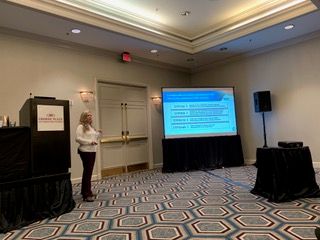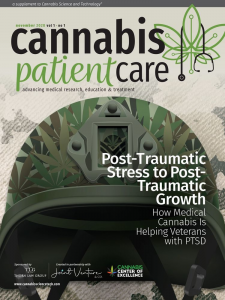Recently, Madeline Colli of Cannabis Patient Care, an educational resource for patients, doctors, nurses, pharmacists, caregivers, and advocates on the latest cannabis research, benefits, and treatment options, interviewed Eloise Theisen on the stigma she has encountered surrounding the use of medical cannabis to treat chronic pain. Theisen is a faculty member at Pacific College of Health and Science’s medical cannabis program and president of the American Cannabis Nurses Association.
Theisen began her career in oncology, where many of her patients suffered chronic pain as a result of both the illness and the cancer treatments themselves. Over the past several years, she has seen an increase in patients interested in using cannabis to treat their pain, often driven by their own research online or prompting by worried grandchildren instead of suggestions from medical professionals. “It became really clear to me that most healthcare professionals did not have good knowledge of cannabis and how to help patients access it safely and effectively,” said Theisen. “Because of my personal experience, I decided to create a practice designed to help patients navigate cannabis as a medicine.” As this was before legalization in California, there was no regulation or quality control of medical cannabis at all, making self-medication a potential minefield for patients in pain. Some products even contained mold and dangerous chemicals. This is where Theisen saw that she could help.

The Stigma of Medical Cannabis in Pain Management
Are you interested in becoming a holistic nursing professional?
Visit the links below to explore our holistic nursing programs:
- Eloise Theisen, Assistant Medical Cannabis Chair, Published by Cannabis Health News
- Problems with Prescribing Medication: Pacific Faculty Interviewed by Healthcare IT Today
- Verywell Health Cites Eloise Theisen, Medical Cannabis Faculty Member, on Talking to Your Doctor About Marijuana
- Holistic Opportunities Abound in U.S. Hospitals: New Integrative Programs Offer Opportunities for Patients & Practitioners Alike

